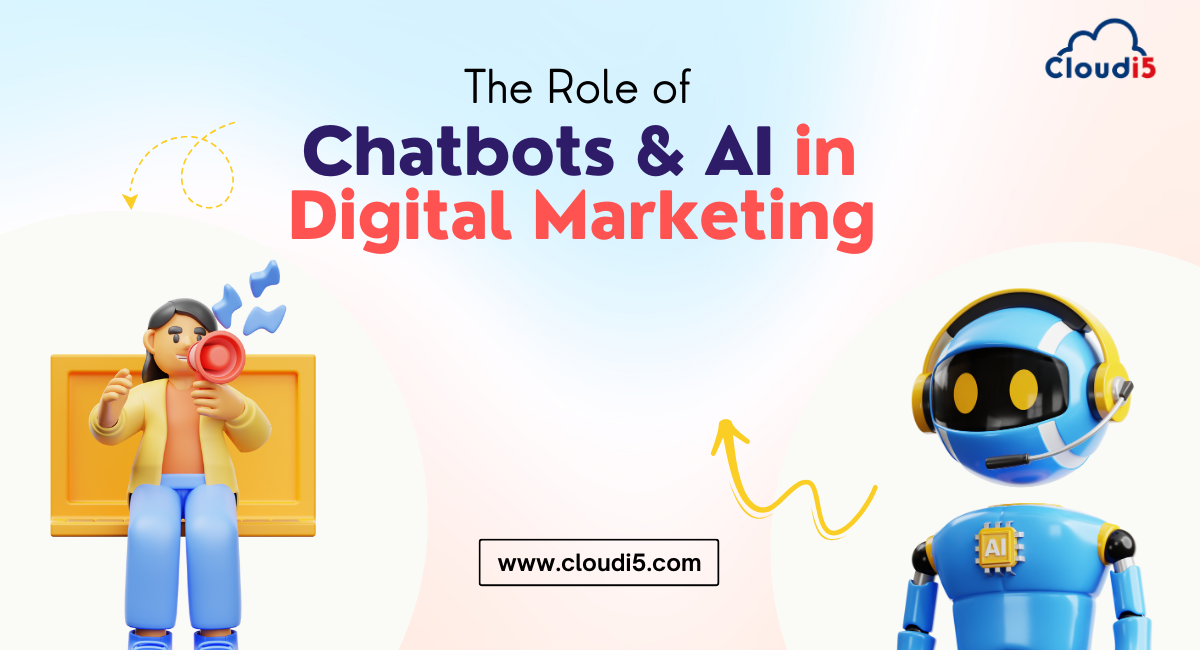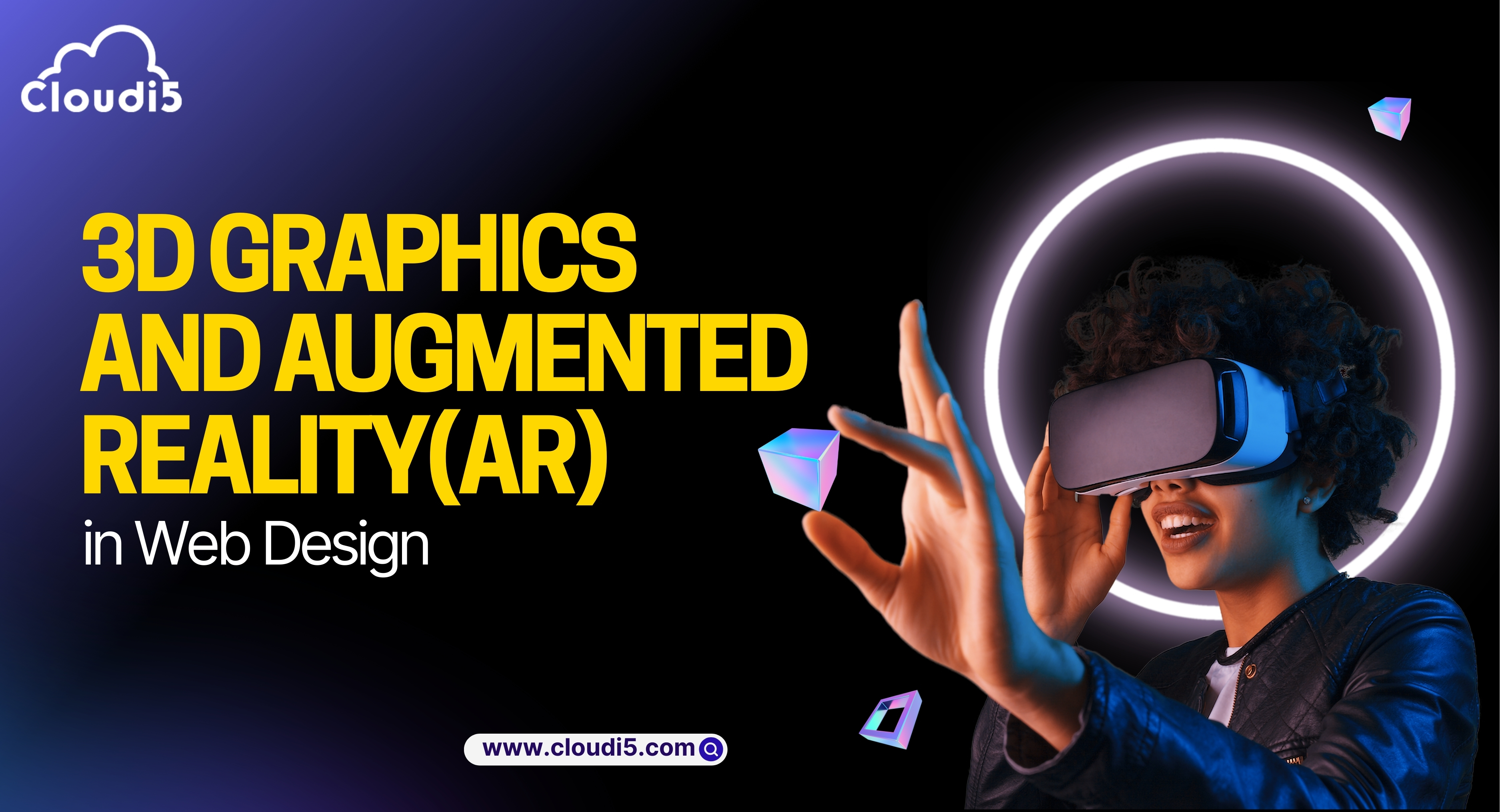
The Role Of Chatbots And Ai In Digital Marketing
Artificial intelligence (AI) and chatbots have become crucial resources in digital marketing in recent years. AI and chatbots can significantly improve digital marketing services in several ways.
In this essay, Let us see how chatbots and AI are essential to digital marketing, altering how companies interact with clients, collect data, and maximize marketing efforts.
What is AI Chatbot?
An AI chatbot, commonly called a chatbot, is computer software that simulates human-like discussions with users using artificial intelligence (AI) and natural language processing (NLP) technology.
These chatbots are made to converse with consumers naturally using websites, voice interfaces, or text-based messaging services. They can comprehend user input, process it, and produce pertinent responses.
Essential traits of AI chatbots:
1.Natural Language Understanding: The ability to understand and interpret spoken human language, including various accents and slang phrases, is taught to chatbots.
2.Context Awareness: They can keep the conversation in context by recalling prior statements or queries to offer well-organized and relevant answers.
3.Personalization: Chatbots should be able to tailor their responses to each user's preferences, past interactions, and current behavior. Adding personalization improves user experience.
4.Multimodal Capabilities: Modern chatbots should be able to accept speech, visual, and audio inputs in addition to text, making them adaptable to various platforms and devices.
5.Natural Dialogue Flow: Conversations with a chatbot should appear and feel human-like. This entails addressing people properly, dealing with interruptions, and adhering to conversational conventions.
6.Learning and Adaptation: AI chatbots should be able to pick up new skills from users and change their behavior in response to new situations. They can get better over time with the aid of techniques like machine learning and reinforcement learning.
7.Speed and Efficiency: User-friendly chatbots that answer fast and effectively are in high demand. A positive user experience is facilitated by low latency and short wait times.
8.Quality and Reliability: Chatbots must continuously deliver reliable information and responses. Building user trust means minimizing errors and inconsistent behavior.
9.Emotional IQ: Although not necessary, emotional IQ helps improve chatbot interactions. Conversations can become more empathic and productive by being aware of user emotions and responding appropriately.
10.Intelligence Capabilities: The ability to interact with other systems and databases allows efficient chatbots to access and retrieve data, carry out activities, and offer helpful services.
11.Security and Privacy: Chatbots have to prioritize user privacy and safety first. Building trust requires handling sensitive data with care and protection.
12.Analytics and Reporting: Giving organizations information on user interactions and performance indicators enables them to track and enhance chatbot efficiency over time.
13.Continuous Improvement: Chatbots should be updated and created regularly to keep up with changing user needs, technology advancements, and adjustments in the corporate environment.
These characteristics make AI chatbots more productive and valuable, making them essential resources for enterprises and organizations across various industries.
Digital Marketing and AI's Contribution:
Digital marketers may employ generative AI in various ways to develop content, interact with people, and more successfully optimize campaigns.
A website that integrates AI-powered features and capabilities to improve user experience, engagement, and overall marketing efficacy is called an artificial intelligence (AI) website in digital marketing. These websites use artificial intelligence (AI) technologies to tailor content, enhance user interactions, and collect insightful data for marketing. The incorporation of AI (Artificial Intelligence) technologies can have a significant positive impact on website and digital marketing strategies. Website design, user experience, and digital marketing initiatives can all benefit from AI.
Here are some applications of generative AI in digital marketing.
1.Data Insights and Insights:
- Large volumes of data from many sources can be processed and analyzed by AI-driven analytics tools, producing trends and insights that can be used.
- A deeper understanding of consumer behavior, tastes, and market dynamics can help marketers make data-driven decisions.
2.Personalization:
- Individual user preferences and behaviors can be considered when developing highly personalized marketing campaigns using AI algorithms.
- Delivering pertinent content, product recommendations, and offers increases user engagement and conversion rates.
3.Creating and optimizing content:
- Written and visual material can be automatically created, curated, and optimized using AI-powered technologies.
- Techniques for computer vision and natural language processing (NLP) enhance the quality and relevancy of content.
4.Chatbots and Virtual Assistants:
- AI-driven chatbots and virtual assistants respond quickly to consumer inquiries, improving the user experience and offering 24/7 service.
- They can manage rote chores, respond to frequently asked questions, and direct users through sales funnels.
5.Email Promotion:
- AI may improve email marketing efforts by segmenting subscribers, tailoring content, and selecting the most effective sending times.
- High-value leads can be found using predictive analytics, and email content can be customized to increase conversion rates.
6.Optimization for search engines (SEO):
- AI technologies make researching keywords, optimizing content, and keeping track of search engine rankings easier.
- By adjusting to changes in search engine algorithms and user search behavior, AI-powered SEO aids businesses in remaining competitive. Chatbots in business sphere has become increasingly prevalent and valuable, transforming how companies interact with customers, streamline operations, and improve overall efficiency.
7.Paid Promotion:
- Pay-per-click (PPC) advertising campaigns are automated and optimized using AI, lowering ad expenditure inefficiencies.
- The best keywords, ad placements, bidding schemes, and ad creative variations are found using AI-driven techniques.
8.Engines for recommending things
- AI recommendation engines examine user browsing patterns and behavior to recommend goods, information, or services.
- As a result, there are more options for cross-selling and upselling, which boosts revenue.
9.Management of social media:
- Social media scheduling is automated, engagement metrics are analyzed, and AI technologies suggest content plans.
- With AI-driven insights, marketers may improve their social media engagement and presence.
10.Detecting and preventing fraud
- Artificial intelligence (AI) algorithms identify and stop fraudulent actions in digital marketing, including click and ad fraud.
- This protects advertising resources and guarantees the success of campaigns.
As technology progresses, AI's contributions to digital marketing continue to change.
Future Prospects for AI and Chatbots in Digital Marketing:
As technology develops, there are many exciting prospects for chatbots and AI in digital marketing.
Here are some essential paths in which chatbots and AI in the field of digital marketing are likely to develop:
1.Hyper-Personalization: AI will be crucial to developing highly customized marketing experiences. In order to evaluate user data and give highly personalized content, product recommendations, and offers in real-time, chatbots will use cutting-edge algorithms.
2.Conversational AI Advances: Chatbots will become even more casual and human-like thanks to natural language processing (NLP) improvements and natural language understanding (NLU). They will be more equipped to handle difficult talks, comprehend context, and respond empathically.
3.Voice-Based Interaction: Chatbots and virtual assistants that respond to voice commands will spread. Marketers will adapt their tactics for voice-based engagements as smart speakers, and voice search become more widely used.
4.Multimodal Interfaces: Chatbots will be able to handle a variety of text, speech, image, and video input and output modalities. More affluent and more engaged dialogues with users will be made possible.
5.Content Produced by AI: AI will continue to produce content, such as social media updates, product descriptions, and blog pieces. Marketers will use AI-generated content to scale their efforts while retaining quality.
6.Marketing Prediction: Predictive analytics driven by AI will assist marketers in anticipating user behavior, enabling proactive targeting and individualized recommendations.
7.Data Privacy and Security: As data privacy becomes more scrutinized, AI-powered chatbots will need to prioritize the secure handling of user data and adhere to changing rules.
8.Emotional Intelligence: Chatbots will have improved emotional intelligence, making it possible for robots to identify and react to human emotions. This capability can be beneficial for customer service and brand engagement.
With technology constantly advancing to improve customer interaction, optimize marketing operations, and create more individualized and engaging experiences, the future of chatbots and AI in digital marketing is bright.
Conclusion:
In conclusion, the use of chatbots and AI in digital marketing is unquestionably revolutionary and essential in today's fast-paced digital environment. These modern technologies have become crucial resources for companies looking to engage customers, improve internal processes, and boost marketing effectiveness.
Trusted By












Leave Comments